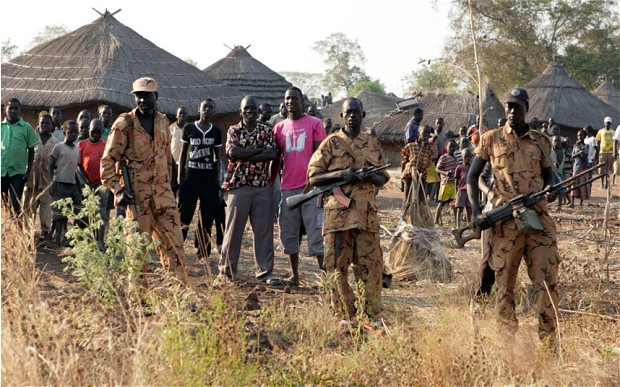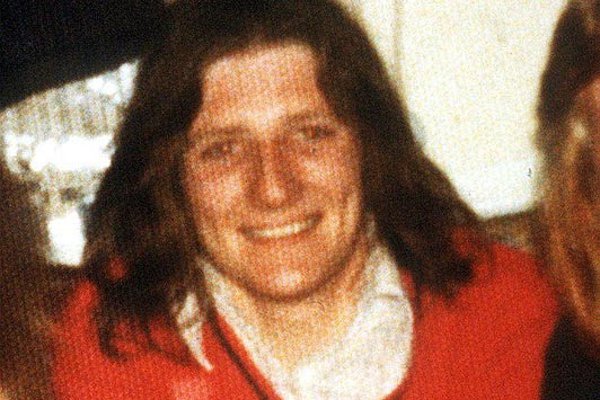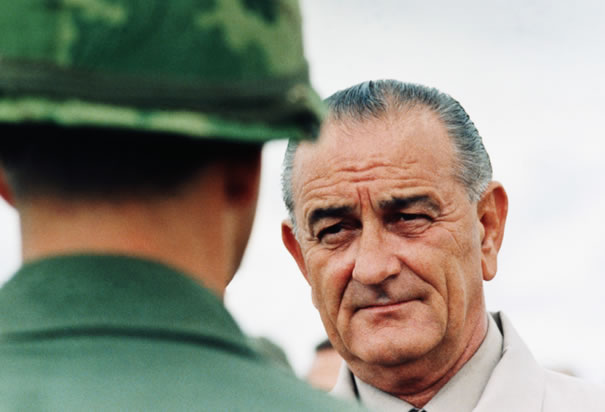 It’s a scene right out of Richard Connell’s vivid short story — The Most Dangerous Game. You remember it, right? High school students across the nation still get creeped out by it.
It’s a scene right out of Richard Connell’s vivid short story — The Most Dangerous Game. You remember it, right? High school students across the nation still get creeped out by it.
On the way to hunt big game, Ranisford falls out of the boat trying to retrieve his pipe. This after just telling everyone how glad he was to be the hunter, not the prey.
“It will be light enough in Rio,” promised Whitney. “We should make it in a few days. I hope the jaguar guns have come from Purdey’s. We should have some good hunting up the Amazon. Great sport, hunting.”
“The best sport in the world,” agreed Rainsford.
“For the hunter,” amended Whitney. “Not for the jaguar.”
“Don’t talk rot, Whitney,” said Rainsford. “You’re a big-game hunter, not a philosopher. Who cares how a jaguar feels?”
“Perhaps the jaguar does,” observed Whitney.
“Bah! They’ve no understanding.”
“Even so, I rather think they understand one thing–fear. The fear of pain and the fear of death.”
“Nonsense,” laughed Rainsford. “This hot weather is making you soft, Whitney. Be a realist. The world is made up of two classes–the hunters and the huntees. Luckily, you and I are hunters. Do you think we’ve passed that island yet?”
#
 Good thing he noticed that island because after he fell from the boat Rainsford had to swim to it.
Good thing he noticed that island because after he fell from the boat Rainsford had to swim to it.
Or maybe it wasn’t such a good thing, after all, because it was there, on the island, that Rainsford’s story took a turn he never envisioned — when he became the prey of General Zaroff.
“Simply this: hunting had ceased to be what you call `a sporting proposition.’ It had become too easy. I always got my quarry. Always. There is no greater bore than perfection.”
The general lit a fresh cigarette.
“No animal had a chance with me any more. That is no boast; it is a mathematical certainty. The animal had nothing but his legs and his instinct. Instinct is no match for reason. When I thought of this it was a tragic moment for me, I can tell you.”
Rainsford leaned across the table, absorbed in what his host was saying.
“It came to me as an inspiration what I must do,” the general went on.
“And that was?”
The general smiled the quiet smile of one who has faced an obstacle and surmounted it with success. “I had to invent a new animal to hunt,” he said.
“A new animal? You’re joking.” “Not at all,” said the general. “I never joke about hunting. I needed a new animal. I found one. So I bought this island built this house, and here I do my hunting. The island is perfect for my purposes–there are jungles with a maze of traits in them, hills, swamps–“
“But the animal, General Zaroff?”
“Oh,” said the general, “it supplies me with the most exciting hunting in the world. No other hunting compares with it for an instant. Every day I hunt, and I never grow bored now, for I have a quarry with which I can match my wits.”
Rainsford’s bewilderment showed in his face.
“I wanted the ideal animal to hunt,” explained the general. “So I said, `What are the attributes of an ideal quarry?’ And the answer was, of course, `It must have courage, cunning, and, above all, it must be able to reason.”‘
“But no animal can reason,” objected Rainsford.
“My dear fellow,” said the general, “there is one that can.”
“But you can’t mean–” gasped Rainsford.
“And why not?”
“I can’t believe you are serious, General Zaroff. This is a grisly joke.”
“Why should I not be serious? I am speaking of hunting.”
“Hunting? Great Guns, General Zaroff, what you speak of is murder.”
#
 It seems Rupert Murdoch has found himself in the midst of a Richard Connell short story.
It seems Rupert Murdoch has found himself in the midst of a Richard Connell short story.
In a twist that only Karma or Connell himself might have predicted, the greedy hunter has become the prey on the move.
As a journalist, I have mixed feelings about all this. I feel bad for the thousands of workers who rise at day break or at midnight in their two-bedroom flats or suburban ranch homes to drive into work at one of the many corporations that Murdoch, through genius and ambition, has created. I’ve worked alongside many a good journalist throughout my career.
Journalists who know how to work a beat in an ethical and respectable fashion. I like to fancy myself as such a journalist. I cultivated my sources through hard work and consistency. The world is full of journalists who do this, day in and day out. They work a story the way a story is supposed to be worked — through the relationships one cultivates and that all important tool of any journalist — integrity.
In the world of bylines, we call that credibility.
There were times when mine was called into question but I never worried about it. I knew what those calling my credibility into question didn’t — I never obtained information in any illegal fashion. I took my integrity seriously, even when they were quick to dismiss it.
#
 Oh, I had certainly heard stories of journalists who pretended to be somebody they weren’t in an effort to “get the story.” The first time I heard tell of this sort of behavior was back in 1998 when Kip Kinkel murdered his parents, and then went to Thurston High School (Eugene, Oregon) the next morning and killed two students and wounded 25 others in a random act of sheer violence.
Oh, I had certainly heard stories of journalists who pretended to be somebody they weren’t in an effort to “get the story.” The first time I heard tell of this sort of behavior was back in 1998 when Kip Kinkel murdered his parents, and then went to Thurston High School (Eugene, Oregon) the next morning and killed two students and wounded 25 others in a random act of sheer violence.
National media descended on Eugene in a matter of hours, setting up satellite vans and dispatching their reporters to obtain gruesome details about the murders and about Kip Kinkel and to do it all before deadline. Friends who worked in the region, fellow journalists who did their jobs in a respectable fashion, told me that hospital staff were besieged by the press seeking details about the survivors. They wanted the scoop from the kids who had been trapped in that school cafeteria before five brave souls decided that they would rush Kip and bring him down before he killed anyone else.
Nothing mattered to a few of these journalists other than getting the inside scoop. They reportedly did things like dressing up as hospital workers, or posing as family members in order to get at the bedside of the wounded.
I have no idea how many — if any really — actually went this far to obtain a deadline story. But that was the first incident when I recall learning the depths to which some journalists will go for a headline story.
The next incident happened to me.
#
 I had written one of those stories I call the “headless chicken dance stories”. You know the odd thing. It was about a woman who had weighed 1,200 pounds and had through hard work and determination dropped 800 pounds. It had taken her 10 years and had left her with a skin-lap that weighed in at 100 pounds. She was petitioning the state to pay to have the lap removed so that she could have better mobility, so she could get off of state-assistance. Get a job. Have a life.
I had written one of those stories I call the “headless chicken dance stories”. You know the odd thing. It was about a woman who had weighed 1,200 pounds and had through hard work and determination dropped 800 pounds. It had taken her 10 years and had left her with a skin-lap that weighed in at 100 pounds. She was petitioning the state to pay to have the lap removed so that she could have better mobility, so she could get off of state-assistance. Get a job. Have a life.
I wrote the story like I wrote hundreds of stories — on deadline. I thought it was interesting but I didn’t think much else about it. It was one of hundreds of human interest stories I’ve written. I never anticipated that the national news media would respond they way they did.
Because the woman was not listed in the phone book the only way the national media had to get to her was through me. This was in the day before cell phones. Yes. I know. Hard to imagine. The phones at the newspaper rang for days. Every major news corp out there called to find out how they could get a hold of this lady.
The phone rang so much my editor started referring to me as the “Fat reporter”, a snide slam, I’m sure. He could be mean like that.
When the television producer for the show EXTRA called, he expected me to be flattered.
“We are the show from L. A.,” he said.
“Yes, I know your show.”
“We’d like to get a hold of the woman you did the story on. Can you tell us how to do that?”
“What’s the matter?” I replied. “Don’t you have any fat people in L. A. you can profile?”
One of Germany’s top news crews flew in to rural Eastern Oregon to profile the lady with the fat lap. It left me with a bad taste in my mouth for the whole sleazy business of entertainment “news.”
The sort of news that helped make Rupert Murdoch — if not rich — then richer.
#
Now Rupert Murdoch finds himself on the other side of the headline. The empire he has so stealthily built upon sand, now crumbling.
Journalists are now saying Murdoch’s style of news was a culture run amuck.
They are saying it’s doomsday for Murdoch shareholders.
“If you’re a major shareholder of the company, you have a good reason to be worried,” Andrew Schwartzman, senior vice president and policy director of the Media Access Project, a Washington public interest group. “This could pose a long term threat to the company.”
Investigations of Murdoch are underway from London to D.C.
 There’s been at least one arrest with more surely to follow. There is rumor of death among the dedicated, and numerous reports of people falling on the sword for Murdoch.
There’s been at least one arrest with more surely to follow. There is rumor of death among the dedicated, and numerous reports of people falling on the sword for Murdoch.
In perhaps the greatest of all ironies, the media organization widely-recognized for harping about the “liberal biased media” is now reporting on Rupert Murdoch (their owner) for inappropriately using his vast wealth to advance his conservative political agenda.
Speaking of that wealth.
It’s taking a nose-dive.
But I take no glee in that.
I know what that means for those living in those two-bedroom flats and those suburban ranch homes — that means a loss of jobs.
It means someone is going to run out of money before the month is out.
It won’t be Rupert Murdoch.
Still I imagine Murdoch feels much like Rainsford did when General Zaroff explained the game to him:
My dear fellow,” said the general, “have I not told you I always mean what I say about hunting? This is really an inspiration. I drink to a foeman worthy of my steel–at last.” The general raised his glass, but Rainsford sat staring at him.
“You’ll find this game worth playing,” the general said enthusiastically.” Your brain against mine. Your woodcraft against mine. Your strength and stamina against mine. Outdoor chess! And the stake is not without value, eh?”
#
Yes. I know. In the end, Rainsford proves himself the better hunter.
It’s yet to be seen if Murdoch will survive the hunt or not.
While it may be true that the nature of journalism is changing with this digital age, the nature of man is not.
Throughout the ages, there have been some things more important than getting the scoop.
Treating people with respect, for one.
As one very wealthy man of another era once noted: A good reputation and respect are worth much more than silver and gold. Prov. 22:1
Can I get an Amen on that Rupert?












